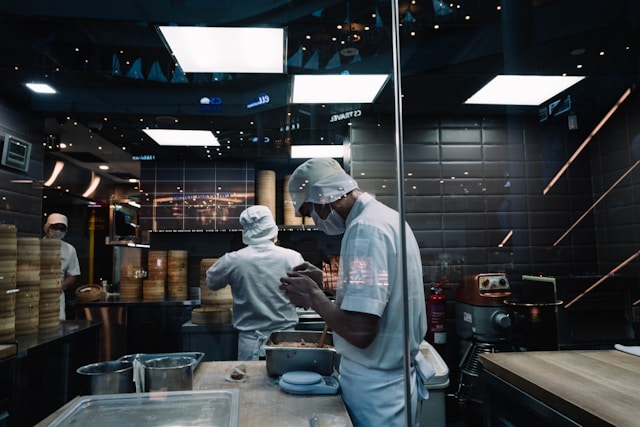Artificial intelligence (AI) is no longer a futuristic concept it’s here, and it’s transforming the way we live, interact, and work. As AI continues to integrate into various industries, a pressing question looms over many professionals: Will AI replace my job?
The future of work is being reshaped by rapid advancements in technology. While some roles are being automated, new opportunities are emerging in unexpected ways. In this article, we’ll explore how AI is changing the employment landscape, which jobs are most at risk, and how you can future-proof your career.
AI and Automation: What’s Happening Now
AI has made significant inroads into multiple sectors. From chatbots handling customer service inquiries to algorithms optimizing supply chains, the presence of AI in the workplace is undeniable.
In customer service, for example, companies now deploy AI-powered virtual assistants to handle common questions, reducing the need for large human teams. In logistics, predictive algorithms forecast inventory needs and route deliveries with greater precision than ever before. In healthcare, AI aids in diagnostics, helping doctors make faster and more accurate decisions.
Technologies like machine learning, natural language processing, and generative AI (such as ChatGPT and DALL·E) are pushing the boundaries of what machines can do. These tools are improving productivity, reducing operational costs, and reshaping the workforce.
Jobs at Risk
With all this change, it’s natural to wonder: Will AI take my job? The reality is that some roles are more vulnerable than others, especially those that involve routine, repetitive tasks.
According to studies by McKinsey and the World Economic Forum, the jobs most at risk of automation include:
-
Data entry clerks
-
Telemarketers
-
Basic customer service representatives
-
Cashiers and retail workers
-
Manufacturing and warehouse laborers
These jobs often involve predictable and structured activities exactly the kind that AI systems excel at. For example, automated checkout systems are replacing cashiers, and AI chatbots are handling basic customer service interactions.
However, even in these sectors, automation doesn’t always mean total job loss. It often means job transformation. Workers may be asked to take on more complex or human-facing tasks while AI handles the repetitive parts.
Jobs AI Can’t Replace (Yet)
Despite its capabilities, AI has limitations particularly when it comes to emotional intelligence, creativity, and nuanced decision-making. Jobs that rely on these human traits are less likely to be automated in the near future.
Examples of roles that AI can’t easily replace include:
-
Mental health professionals: Therapists and counselors provide empathy, deep listening, and human connection things AI still struggles to replicate.
-
Creative professionals: Writers, designers, musicians, and artists rely on intuition and originality. While AI can generate content, human creativity remains unmatched.
-
Healthcare providers: Doctors, nurses, and caregivers offer personal, emotional, and ethical care that requires a human touch.
-
Leaders and managers: Leadership involves empathy, vision, and inspiration traits that are difficult for machines to emulate.
In short, jobs that demand high emotional intelligence, cultural sensitivity, and creative problem-solving are harder for AI to replace.
The New Jobs AI Will Create
While some roles may disappear, AI will also create new jobs that never existed before. In fact, many experts argue that the future of work will be marked more by transformation than elimination.
Emerging roles include:
-
AI ethicists to ensure ethical use of technology
-
Machine learning engineers and data scientists
-
Human-AI interaction designers
-
Prompt engineers who specialize in optimizing AI outputs
-
Digital wellness coaches focused on helping people navigate tech-driven lifestyles
The demand for professionals who can understand, manage, and collaborate with AI systems is rapidly increasing. These new roles will require both technical skills and a strong understanding of human needs and behavior.
How to Future-Proof Your Career
So, how can you stay ahead in an AI-driven job market? Here are practical steps to future-proof your career:
-
Embrace lifelong learning
Continuous education is key. Take online courses, attend workshops, and stay informed about trends in your industry. -
Build soft skills
Skills like communication, adaptability, emotional intelligence, and collaboration will become more valuable than ever. -
Develop digital literacy
You don’t need to be a coder, but understanding how AI tools work and how to use them will set you apart. -
Explore hybrid roles
Many future jobs will blend human creativity with AI efficiency. Look for roles where you can complement technology rather than compete with it. -
Stay adaptable
The future of work will likely involve shifting roles and responsibilities. Being open to change is a crucial mindset for long-term success.
Conclusion
So, will AI replace your job? The answer is: it depends. While certain tasks and roles are likely to be automated, many jobs will evolve rather than disappear. And for every job AI replaces, it’s likely to create new opportunities in return.

